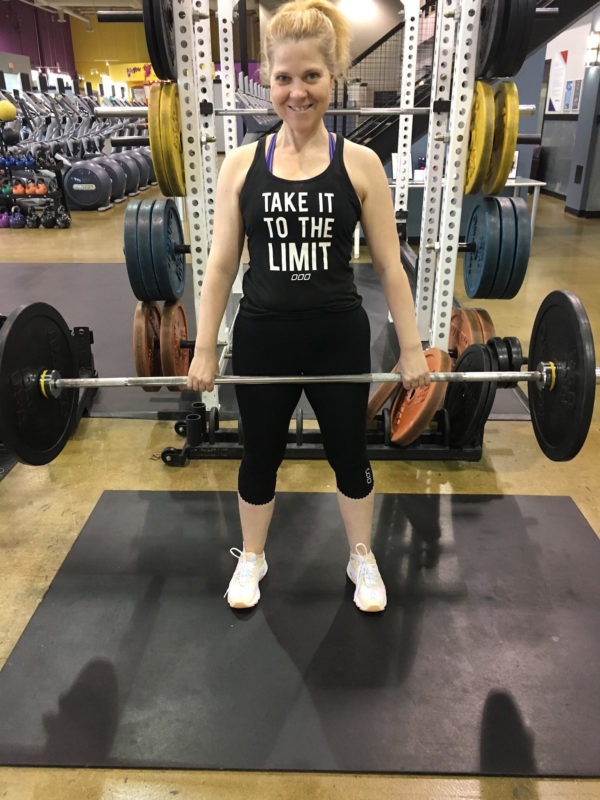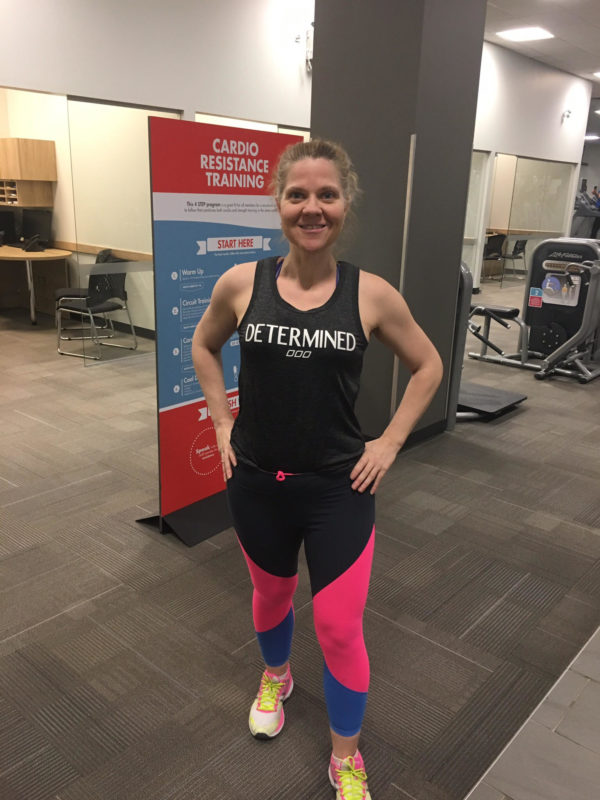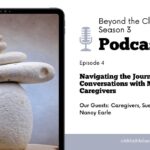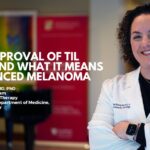Featured Survivor Story:


by Vallerie A. Malkin
Tanya Lafontaine is a 45-year-old mother, fitness professional, and Stage IV melanoma survivor. She is here to say that she is not giving up, and if you have melanoma, neither should you.
Lafontaine was originally diagnosed with Stage II melanoma on July 25, 2016. After the cancer spread first to her lymph nodes and then to her lungs, she faced a Stage IV diagnosis and the grim knowledge that the survival statistics were not at all in her favor. But Lafontaine’s doctors have been scratching their heads over her ability to clear one hurdle after another with unyielding optimism.

Years of consistent cardio and barbell workouts and teaching 22-28 classes a month at the World Health gym helped prepare Lafontaine for the fight of her life. “Those exercise endorphins are my drug!” she says, laughing. In fact, Lafontaine is pretty sure that her habit of looking on the bright side is how she has been able to rebound after two harrowing operations and clinical trials so tough they wiped out her endocrine system.
The group exercise instructor from St. Albert (Alberta, Canada) continues to bring her A-game to the fight each day, and her workout schedule alone still puts most of us to shame. Her mental grit helps her stay focused on and present to the important matters at hand, like raising her 9-year-old son, Andreas.
The story of Tanya Lafontaine is very much a story of resilience, love, and hope.
Always the Fighter
Lafontaine doesn’t know where she gets her inner strength from, but she’s been able to tap into it throughout her life. “I think I’ve always been that fighter,” she says.
Lafontaine recalls nine years ago during “the world’s worst pregnancy” being told her baby would arrive “very, very prematurely.” Her inner prizefighter emerged: “No, he won’t!” she told the doctors. “There’s no way on earth I’m giving birth to a child who will be in the ICU for six weeks or longer.”

Ever-disciplined and fastidious, the new mother-to-be put herself on hospital bed rest and did not budge for eight-and-a-half weeks. “I had little talks with Andreas,” says Lafontaine, “and I told him over and over, ‘Nope, this is not going to happen.’” The doctors insisted they knew better, but in 35 weeks a healthy baby boy arrived on his mother’s schedule, not nature’s.
She has continued to fight hard for Andreas, who is learning about his own inner strength at a young age. She relays a story about how Andreas was apprehensive in the months leading up to his taekwondo belt promotion test. Self-doubt had started to creep in. So his mom gave him the kind of pep talk she has had to give herself.
“I told him, ‘You’ve got this, Andreas!’” says Lafontaine. After a few minutes of silence, Andreas appeared resolute and declared: “Mom, I am not giving up!” He then took to his task with a gutsy countenance and emerged from the test with the yellow stripe required to move to the next level.
“He’s got this stubbornness,” she explains. “I think he’s a lot like me.”
It Takes a Community
The hardest part of being sick for Lafontaine is that she has no family other than her beautiful son. So she has had to rely heavily on friends and her “fitness family” at World Health Fitness and beyond, in Canada and the U.S. Her community has risen to the occasion—and then some. They have visited her in the ICU and dropped off inspirational gifts and food: It took her and Andreas three hours to get all of the meals they made into the refrigerator and freezers.
If not for the gym, Lafontaine may not have learned she had melanoma in the first place. A member in one of her classes noticed a suspicious mole on her back and urged her to get it checked. A biopsy resulted in her Stage II melanoma diagnosis; the mole was removed in August 2016. Eight months later doctors found swelling in her right axilla. A radical lymph node dissection was ordered, and three of 30 lymph nodes were found to be positive, which re-classified her as Stage IIIB.
Hanging Tough
In August of 2017, Lafontaine began a clinical trial using immunotherapy, but she soon found the medication was not working. What was worse, the treatment had caused irreparable damage to her endocrine system, and she experienced pituitary failure. Lafontaine again chose to look on the bright side when she learned that medication could rebalance her system, but she would be on it for life.

Lafontaine only had one round of this new treatment before a scan revealed the melanoma had spread to her lungs.
But Lafontaine was still choosing to say yes to workouts and to her life, and for a little while, things were good. Then on April 25, 2018, during a workout, she sat down and lost consciousness. Her brain had swollen, and doctors had no choice but to operate. Initially, no one wanted to take on the complicated surgery. Then the father of a famous Olympic triathlete named Paula Findlay at Alberta Hospital stepped up, and on May 5 – a day before her son turned nine – Lafontaine underwent a craniotomy to remove a hemangioblastoma caused by her cancer treatments.
She was then transferred to the Glen Rose Brain Injury Nursing and Rehabilitation Hospital on May 17 where she had to learn how to walk and speak again. As always, Lafontaine “had this.” At her discharge conference on June 21, her doctors were astounded. “We don’t even have a form for this,” they told her, “we just have to make one up.”
Her doctors were sure she would be going home with a walker or wheelchair, but once again she defied the odds. “On discharge day I got my driver’s license back,” she explains. Then, she drove to Costco to buy her son a snowsuit.
At her next appointment, there was both good news and bad news: The craniotomy revealed the hemangioblastoma was benign. But Lafontaine’s melanoma had grown by 30 percent. Ever the optimist, she is thankful that it has not grown more, and thus far, miraculously, she has no symptoms and is breathing at full capacity. She is in treatment at the Cross Cancer Institute and staying present. As always, she remains hopeful. She continues to work with a trainer twice a week to rebuild her strength so she can maybe get back to teaching. She is focused on her son.
“We’re making lots of special memories doing lots of stuff,” she says, “and he’s really doing awesome.” There are long chats at lunch, visits to the Disney Store, or a kid movie. His mother is open with him, sparing him upsetting details, but he knows the score. Sometimes she will hear Andreas casually tell his friends, “My mom has Stage IV melanoma — but she’s handling it.”
“I believe that we are going to find a cure,” she says. Until then: “I refuse to give in and I absolutely will never give up. This disease is tough, but I am tougher!”
Recent Posts

Navigating the Journey Together – Conversations with Melanoma Caregivers

May is Brain Tumor Awareness Month

President’s Letter | April 2024

Celebrating a Milestone: 20 Years of the Dallas Steps Against Melanoma Walk

